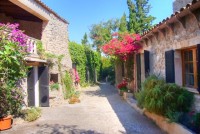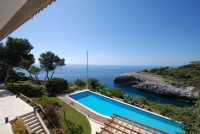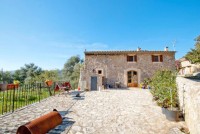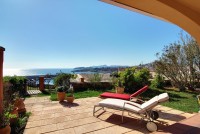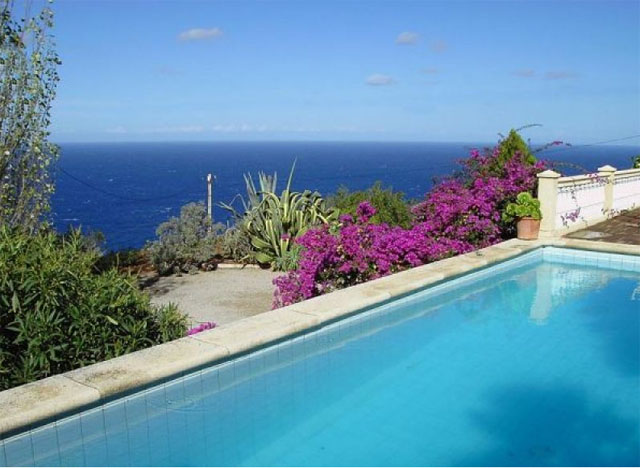Buyers Guide
Purchasing a Property
Upon finding your dream home and agreeing the purchase price with the vendor it is important to take professional advice to ensure the vendor is the true owner, the property is legal, and there are no debts, charges or other legal encumbrances that could be passed on.
Financing
Options are cash, financing from your home country (usually via a second charge on an existing property), or through a Spanish bank who will be keen to offer you a mortgage (hipoteca) with competitive rates and conditions - they will appreciate your business.
Larger property developers often have their own ‘in-house’ finance schemes.
Normal Spanish mortgage terms for non residents are up to 80% valuation with a 15/30 year repayment period and current interest rates of around 4.5%. The formalities are fairly simple with the banks asking far less personal information than you would be used to at home with the larger decision to lend perhaps based more on the valuation of the property than your credit history.
Mortgages with a Spanish bank can often be confirmed within 7/10 days.
Contracts
To initially reserve the property a 1% holding deposit is paid which will allow a 7/14 day period for your lawyer to carry out the necessary searches and negotiate the ‘pre-sale contract’ with the vendor. The contract will set out the conditions of purchase, what is included in the price, the payment schedule, who is responsible for the transaction costs and any ‘subject to’ conditions if appropriate. The full deposit (normally 10%) is then paid to take the property off the market.
This contract is legally binding to both parties with the purchaser forfeiting his deposit if he changes his mind, and the vendor liable to pay back double the deposit if he himself changes his mind.
The final public contract or title deed (escritura de compraventa) is formalised by the public notary upon completion (normally 30 days) and confirms the contract is legal and the purchase monies have been paid. The escritura is then presented to the property register for inscription.
Legal Work
Your lawyer will apply for your NIE / fiscal number (numero de identification de extranjeros) which is essential for major purchases and tax payments, obtain a copy of the nota simpla or escritura from the ‘land registry’ to prove ownership, the legal constructed area, plot size and boundaries, also to check mortgages or any other charges against the property.
He will also check if the local rates have been paid and community charges if they apply.
If a resale property then he will ask for the last receipts of the property and wealth tax as these can be passed on to the purchaser if unpaid, and if purchasing from a new development the deed of declaration of the new construction, the construction licences and occupancy permission.
He should also check if the local authority planning department has any development plans in progress that may affect the area where the property is located.
Taxes
The rule of thumb is to allow an additional 10% to 12% of the ‘declared’ purchase price to cover the transfer tax (impuesto sobre transmisiones), notario and lawyer fees.
The transfer tax for Mallorca is calculated at a 7% start rate of the declared purchase price on the escritura for a resale property, or IVA (impuesto sobre el valor anadido) at 7% + 0.5% stamp duty if buying a new property from a developer, or 15% if purchasing a building plot or commercial premises. Then we have a tax (plus valia) based on the increase in the value of the land since the last sale.
The notario will normally charge up to 2% including tax & registration fees, and your lawyer around 1%. If applying for a mortgage your bank will also have a scale of charges.
Ongoing Fees, Annual Taxes & Utilities
Owners of property in Spain are liable for municipal real estate taxes or rates (impuesto sobre bienes inmuebles) based on the official rateable value of the property (valor catastral), and there is also a wealth tax to pay yearly on your ‘net’ assets. These taxes are much less than UK rates.
If your property is part of an apartment complex or urbanisation then community fees will be charged to cover the cleaning, maintenance, lighting and upkeep of the common areas, swimming pools & gardens. Electricity and gas should be cheaper than in the UK and water normally metered so you only pay for what you use. Telephone and internet connections are right up to date with the latest technology.
The above information is intended as a guide only and should not be taken as a substitute for qualified legal advice as property laws in Spain can change from area to area and time to time.
Our multi-lingual staff welcome visitors from all over the world in your own language wherever we can - we speak English, Spanish, German, Russian and French.


